Recently, the arrest and imprisonment of ex-ISKCON leader Chinmoy Krishna Das has created tension across the country.
The government has charged Chinmoy with treason, causing significant discussion both in and outside of Bangladesh.
The issue of ISKCON has come into the spotlight following Chinmoy’s arrest, and the Anti-Discrimination Students Movement has taken to the streets, demanding a ban on the organization.
The matter has also reached the courts, with several protests and rallies taking place.
The High Court has instructed the Attorney General to provide a report on the government`s stance on ISKCON and the overall situation in the country by the morning of November 28.
Additionally, the court has warned the government to remain vigilant to ensure that law and order do not deteriorate. Given the sensitive nature of the issue, the court summoned the highest legal officer of the state, the Attorney General.
As a result, there is widespread speculation and many questions in the public mind regarding ISKCON and its activities. Let’s explore what ISKCON is, how it was established, and how it came to Bangladesh.
What is ISKCON?
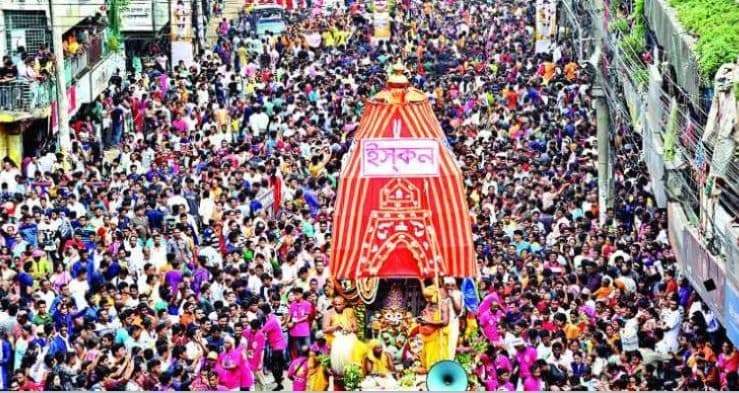
ISKCON stands for the International Society for Krishna Consciousness. It is a religious international organization founded on the teachings of Gaudiya Vaishnavism.
The organization was established nearly fifty years ago, in 1966, in New York by Srila Abhay Charanaravinda Bhaktivedanta Swami Prabhupada, who is widely known as Srila Prabhupada.
ISKCON’s headquarters is in Mayapur, Nadia, West Bengal, India.
According to ISKCON`s literature, the organization aims to merge the ancient religious traditions of Vaishnavism with the modern world.
Its teachings are based on the Bhagavad Gita and the Bhakti movement initiated by Chaitanya Mahaprabhu.
According to the teachings of Chaitanya Mahaprabhu, one does not need to be born into a Hindu family to practice this faith. Anyone, regardless of caste, creed, or religion, can adopt this practice.
Who is Srila Prabhupada?
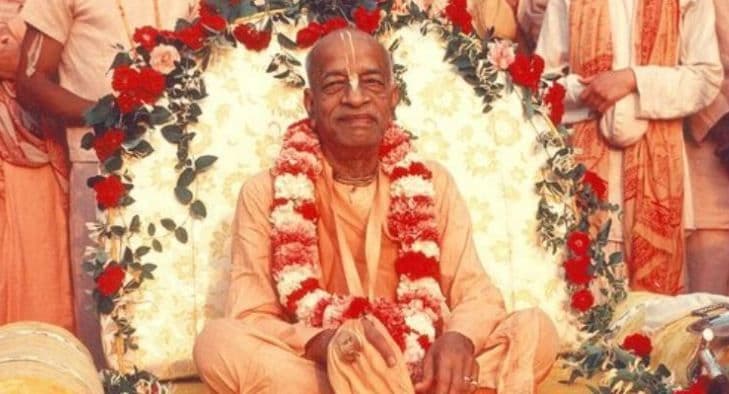
The founder of ISKCON, Srila Abhay Charanaravinda Bhaktivedanta Swami Prabhupada, was born Abhay Charan De.
His followers refer to him as a messenger of the spiritual world, the commander of Gauranga Mahaprabhu, and Bhaktivedanta. He also initiated the Hare Krishna movement.
Srila Prabhupada was born on September 1, 1896, in a Suvarnabanik family in Kolkata on the day of Janmashtami.
His father, Gour Mohan De, and mother, Srimati Rajani De, were both devotees of Krishna.
He himself was a disciple of Bhaktisiddhanta Saraswati. His life’s mission was to spread the teachings of Gaudiya Vaishnavism across the world.
A graduate of Kolkata’s Scottish Church College, Abhay Charan De was married and had children. He studied English alongside Sanskrit.
At the age of 63, in 1959, he took the vows of a sannyasi. In the 1960s, as a traveling monk, he went to America to propagate the teachings of Gaudiya Vaishnavism.
On September 8, 1966, the day after Janmashtami, he organized the first initiation ceremony in the West and initiated 11 disciples.
He founded ISKCON and became a key figure in the Western counterculture.
Due to his global influence, renowned sociologist Max Weber described him as a “charismatic leader.”
He was the first person to organize the Ratha Yatra (chariot festival) in a Western country on July 9, 1967, in the city of San Francisco.
Srila Prabhupada passed away in 1977.
ISKCON’s Ideals, Objectives, and Growth
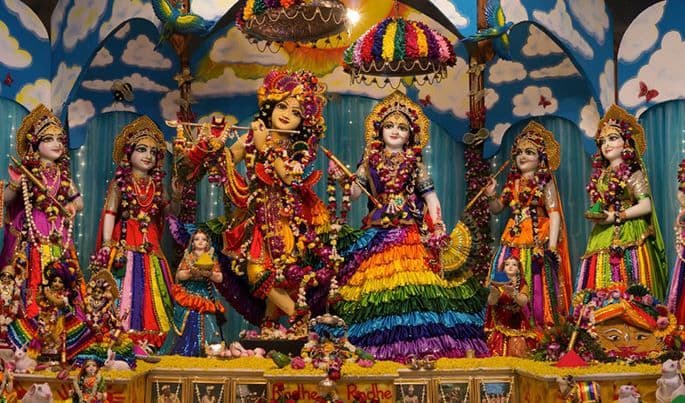
ISKCON’s mission is stated as promoting “religious public service, education, spiritual practice, and worship.” According to ISKCON’s literature, the organization aims to bring about world peace by making people Krishna conscious.
The core belief of ISKCON is that Lord Krishna is the supreme God, and that the primary goal of life is the love and devotion to Krishna.
It belongs to the Gaudiya branch of Vaishnavism and emphasizes four main practices: 1) practicing Krishna bhakti (devotion to Krishna), 2) chanting the holy names of Krishna through japa and kirtan, 3) spreading the Bhakti movement, and 4) observing Vaishnav customs and rituals.
When taking initiation in ISKCON, devotees are required to follow four fundamental rules: 1) accepting lacto-vegetarian food as Krishna prasadam, 2) abstaining from intoxicants, such as alcohol, cigarettes, and other drugs, 3) avoiding gambling, and 4) renouncing illicit sexual relationships.
To promote its mission, ISKCON members chant the Hare Krishna mantra in public and distribute religious literature in various languages.
In addition to daily, weekly, or monthly religious ceremonies, ISKCON devotees celebrate various Hindu festivals, such as Janmashtami, Radhashtami, Diwali, Gaura Purnima, Ekadashi, Holi, Ram Navami, and Gita Jayanti.
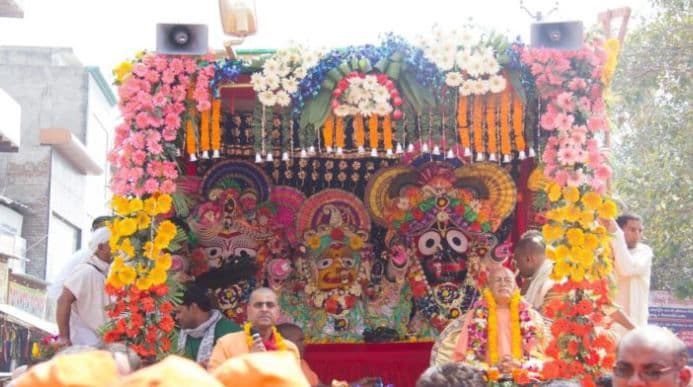
ISKCON is governed by a body known as the Governing Body Commission (GBC), which is responsible for overseeing temple management, spreading Krishna consciousness, distributing literature, opening new centers, and educating devotees.
ISKCON claims that its 48-member commission makes decisions based on consensus.
According to Wikipedia, Srila Prabhupada established over 100 temples for his devotees worldwide.
Currently, ISKCON operates in more than 100 countries.
As of 2009, ISKCON has over 50,000 temples and centers worldwide, including 60 farm communities, 54 schools, and 90 food distribution centers.
The number of ISKCON members has increased significantly in Eastern Europe, America, Central Asia, and the Indian subcontinent.
How Did ISKCON Come to Bangladesh?
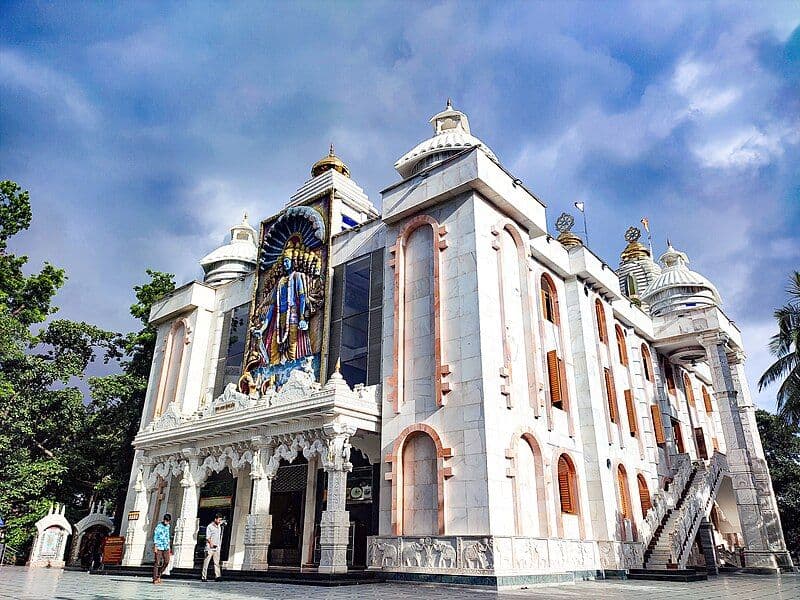
ISKCON’s organized activities in Bangladesh began in 1978, though it is believed that some individuals practiced Krishna devotion privately during the time of Pakistan, before the Bangladesh Liberation War.
ISKCON’s activities began in Dhaka with the support of a few devotees and foreign representatives, initially in a limited capacity.
In the 1980s, ISKCON spread to various parts of the country.
ISKCON’s first temple was established in the Shankhari Bazaar area of Dhaka. Later, branches were established in cities like Chittagong, Khulna, and Sylhet.
ISKCON expanded its presence in Bangladesh through the promotion of the Bhakti movement and social services.
ISKCON operates in Bangladesh through three main channels: 1) religious festivals: large-scale celebrations of festivals like Janmashtami, Ratha Yatra, and Gaura Purnima, 2) education and outreach: promoting the Bhagavad Gita and other religious texts, and 3) social services: distributing free prasadam (sanctified food) and helping impoverished people.
Currently, ISKCON has over 100 temples and ashrams in Bangladesh, including the notable Swamibagh Ashram in Dhaka, the Chakreshwar Temple in Chittagong, and the Nityananda Dham in Mymensingh.
ISKCON is also involved in educational activities in Bangladesh, translating and distributing religious texts like the Bhagavad Gita.
Through the "Food for Life" project, it provides free food to the poor.
Criticisms of ISKCON
From the beginning, ISKCON has faced internal problems, especially after the death of Srila Prabhupada. In the 1990s, some of ISKCON’s senior leaders were accused of child abuse.
According to Wikipedia, ISKCON remains banned in Singapore due to extremism. It is also banned in countries like China, Malaysia, Saudi Arabia, Afghanistan, and Indonesia.
In addition, ISKCON’s activities are closely monitored in Tajikistan, Uzbekistan, Kazakhstan, and Turkmenistan.


-20241128073901.jpg)

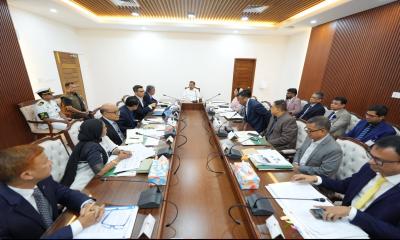
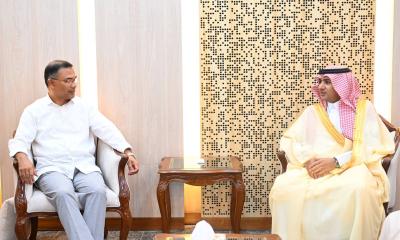





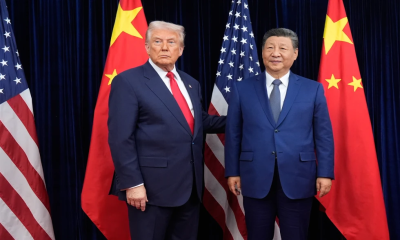
-20260222063838.webp)





-20260221022942.jpg)
-20260221022827.webp)














